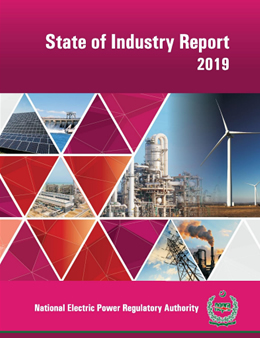Khudayar Mohla –
ISLAMABAD, (TLTP): The National Electric Power Regulatory Authority (Nepra) on Friday conceded that power sector is under extreme financial pressure due to high cost of electricity supply and lackluster performance of distribution sector as currently circular debt is hovering around Rs2 trillion in pandemic outbreak in the country.
In its flagship State of Industry Report 2019, the power sector regulator also revealed that present problems have emanated from centralized control, saying for any recovery of the sector, DISCOs have to be made independent while total or partial privatization of DISCOs must be undertaken forthwith.
Nepra suggests RLNG-based power plants privatisation
While supporting the federal government’s efforts for possible privatization of two RLNG based combined cycle power plants at Balloki (district Kasur) and Haveli Bahadur Shah (district Jhang) having combined generation capacity of 2,453 MW, the Nepra claimed that proceeds from privatization would provide critical financial support to the country.
The regulator further disclosed that higher costs are shrinking energy sales, resulting in higher cost for the end-consumers and further damping energy usage, adding the vicious circle has to be broken to expect any upturn of the sector.
Seeking the federal government’s immediate corrective measures to reduce circular debt which was recorded more than Rs1.6 trillion on June 30, 2019, the Nepra said the government has to grapple with diverging objectives of viability of the entities and affordability of consumers to pay, higher tariffs.
“There are many factors to the state of affairs, which aggravated over years of bad governance, flawed planning and absence of balanced policies. Therefore, the new government has to face tremendous challenges it inherited from the past. Although the electricity sector of Pakistan presents complex settings to solve, lessons can be learned from the efforts made earlier”, stated in the report.
The Nepra report mentioned that during last year, however the Ministry of Energy (Power Division) had embarked upon specifically controlling losses on the high loss making feeders and improving recovery ratios in DISCOs, the two fundamental factors hurting the most.
“The NEPRA fully supports the government in its efforts as reduction in number of “high loss” feeders will also result in sales growth so critical for overall reduction in consumer-end tariff. At the same time, efforts on war footing are to be initiated in all of the DISCOs so that high losses are brought to acceptable levels”, stated in the report.
It further said that these plants due to nature of their contracts are required to operate in preference over other cheaper power plants. As a result, system operator is required to compromise overall economic merit order operation of power generation plants most of the times.
“There are demonstrated innovative solutions to overcome intermittency and forecasting issues once considered as major bottlenecks to induction of renewables. Hybridization of renewable energy power plants is providing answers to many of the concerns for new renewable energy projects” said the report.
The Nepra further disclosed that DISCOs on the other hand have continued to resist net metering regime as such, adding although DISCOs have not been able to demonstrate through any analysis, they have claimed that the net metering regime is going to hurt them financially.
The Nepra added that on its directions, a long-term Indicative Generation Capacity Expansion Plan (IGCEP) is being developed by NTDC as it has held a number of consultative sessions to ensure that all the “inputs” to the expansion plan like “demand forecast” are thoroughly analysed by the stakeholders including private sector experts. NEPRA expects to conduct more such consultative sessions before final approval of the Plan.




